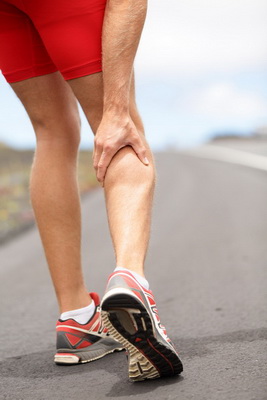Hydration and muscle cramping

Most people have experienced a muscle spasm and know that the pain can be severe. A spasm is the involuntary contraction of a muscle and most often occurs in the lower back or neck and shoulders. These spasms can cause local pain and put pressure on other structures, leading to radiating pain and dysfunction in adjacent areas.
Chronic dehydration can cause muscle spasms. When dehydrated, muscles don't have the sodium, magnesium, potassium and other electrolytes necessary to carry on the metabolic activity and can cause the muscle to spasm.
Muscle cramps don't just happen to young marathon runners, people in their 70s regularly engaging in activities like playing tennis or mowing the lawn suffering from the same muscle cramping as those doing higher intensity exercise. When their nerves that connect to the muscles aren't surrounded by as much water and sodium as they need, they become hypersensitive, causing the muscles to involuntary contract or spasm. Proper hydration will help reduce the development of trigger points and make them easier to treat.
Dehydration can also cause dizziness; headaches; impaired memory and concentration; constipation.
Site designed by Release-Remedial Therapies© | Login

We'd love to hear your reaction
Send Cancel